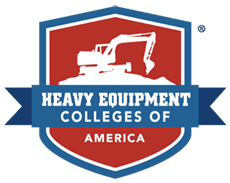An analysis of the heavy equipment industry
The heavy equipment industry plays a critical role in construction: it provides the machinery to increase productivity and expedite completion of projects. Different trends affect the marketplace for heavy equipment and the workforce for those operating the equipment.
Challenges
From environmental regulations to new technology, here are some heavy equipment challenges the industry faces.
Increase in Environmental Regulations:
Concern for the environment has skyrocketed regulations to protect and improve air quality. Reducing emissions and the development of green vehicles have become a priority. This is a challenge to the heavy equipment industry because manufacturers must stay competitive and ensure that their equipment meets these regulations to help them stay in business.
Skilled Labor Shortage:
With aging construction workers retiring, there is a gap left behind in the construction workforce. There is a shortage of skilled construction workers, as well as a shortage of those who want to learn to be construction workers. In fact, The Associated General Contractors of America conducted a survey of nearly 2,000 participants that shows some alarming statistics: about 80% of contractors/construction companies can’t find workers to fill the jobs they have.
New Technology:
Advanced technology poses a challenge to the heavy equipment industry. Manufacturers can either sink or swim with these new advancements. To stay afloat, they must adapt and offer equipment that is up-to-date and tech-savvy. However, keeping up with the latest technology can prove costly for manufacturers and businesses. The inability to match competitors’ technology may marginalize companies, leading to fewer business ventures.
How to Get your Heavy Machinery License??
Opportunities
In the heavy equipment industry, challenges surface, but opportunities prevail.
Construction On the Rise:
Despite some slowing down due to the COVID-19 pandemic, construction is continuing and even growing. The U.S. Bureau of Labor Statistics projected that the market is growing at a rate of 10% from 2018 to 2028. The overall increase in demand for construction means that there is also a demand for heavy equipment and those who can operate it.
Abundant Jobs Available:
A growing market and a shortage of labor mean many opportunities for those looking to enter the heavy equipment industry. Labor shortages are prompting many heavy equipment employers to up the pay and compensation. With various spots to fill, there is sure to be a job to best fit any preference.
Sustainable Fuels Offer Growth:
Electricity and hybrid power can potentially be great opportunities for heavy equipment manufacturers. The opportunity to create machinery with cutting-edge electric and hybrid features can propel them to be industry leaders.
How Covid has Affected the Industry
Before the COVID-19 pandemic, projections for sales and general market activity were strong. When the pandemic hit, expectations rapidly changed; yet the market has been bouncing back relatively quickly.
The pandemic has definitely slowed down the heavy equipment industry. With slowed construction, the demand for equipment and labor decreased. The stay-at-home mandates through March and April took a toll on the industry. Total construction had declined by 6% through June, and the private construction sectors were the ones hit the hardest. Public construction declined by 0.7% due to cuts in education-related projects, highway repair and street construction. However, by June, construction started to pick up again.
Construction has been overall quick to recover compared to other commercial activities throughout the pandemic, and spending has even increased by 0.3% since February.
Job Opportunities and Roles
In a resilient industry such as this one, the job opportunities and roles are plentiful. Seeking a job in the heavy equipment industry is appealing because of the good pay, benefits, job security, and minimal education requirements. This job is one of the few that require only a high school diploma or equivalent but will make a worker roughly 10K more than other jobs with the same requirements. The average salary of someone working in this industry is $46,990 according to the U.S. Bureau of Labor Statistics. Typically, a worker in this field operates heavy machinery such as:
- Loading equipment
- Trench excavators
- Road graders
- Industrial trucks/tractors
- Asphalt spreader
- Forklifts
Along with operating, workers must clean and maintain equipment, make basic repairs, report malfunctioning, and coordinate machine actions with fellow workers by using hand or audio signals.
Even with challenges, the heavy equipment industry is booming. And with lots of benefits and employment perks, being a worker in this industry looks promising. If working in heavy equipment sounds like something you’d want to be a part of, then it is worth checking out the Heavy Equipment Colleges of America. Specializing in a wide range of machinery and operation techniques, they offer hands-on programs tailored to give the best of the best in heavy equipment education.

